The 9 Best Sustainable Yarns We’ve Tested
Jump to:
Top 9 Sustainable Yarns in 2026: Eco-Friendly, Soft, and Cruelty-Free
The joy of knitting or crocheting is about more than just the finished product—it’s about the materials we choose and the impact they have on our planet. In a world increasingly aware of waste and ethical sourcing, the demand for sustainable yarns has never been higher. Yet, finding a yarn that is truly eco-friendly, wonderfully soft to work with, and ethically produced can feel like searching for a hidden gem.
I’m Aurora Grace , and at Craftideas.blog, we believe you shouldn’t have to compromise your values for your craft. Over the past few months, I’ve meticulously researched and worked with dozens of fiber brands, moving beyond the usual organic cotton to explore innovative materials like recycled silk, Tencel, and ethically-raised alpaca.
This definitive list of the Top 9 Sustainable Yarns of 2026 is designed to cut through the greenwashing. We focus on fibers that are proven to be low-impact, durable, and deliver premium results without harming the planet or its inhabitants.
In this guide, you will discover:
* The best natural and recycled yarns that are GOTS-certified.
* Why “eco-friendly” doesn’t have to mean scratchy or expensive.
* The perfect sustainable fiber for your next heirloom project.
Our favorite is the Echo Fiber Mill Ranger Merino Yarn
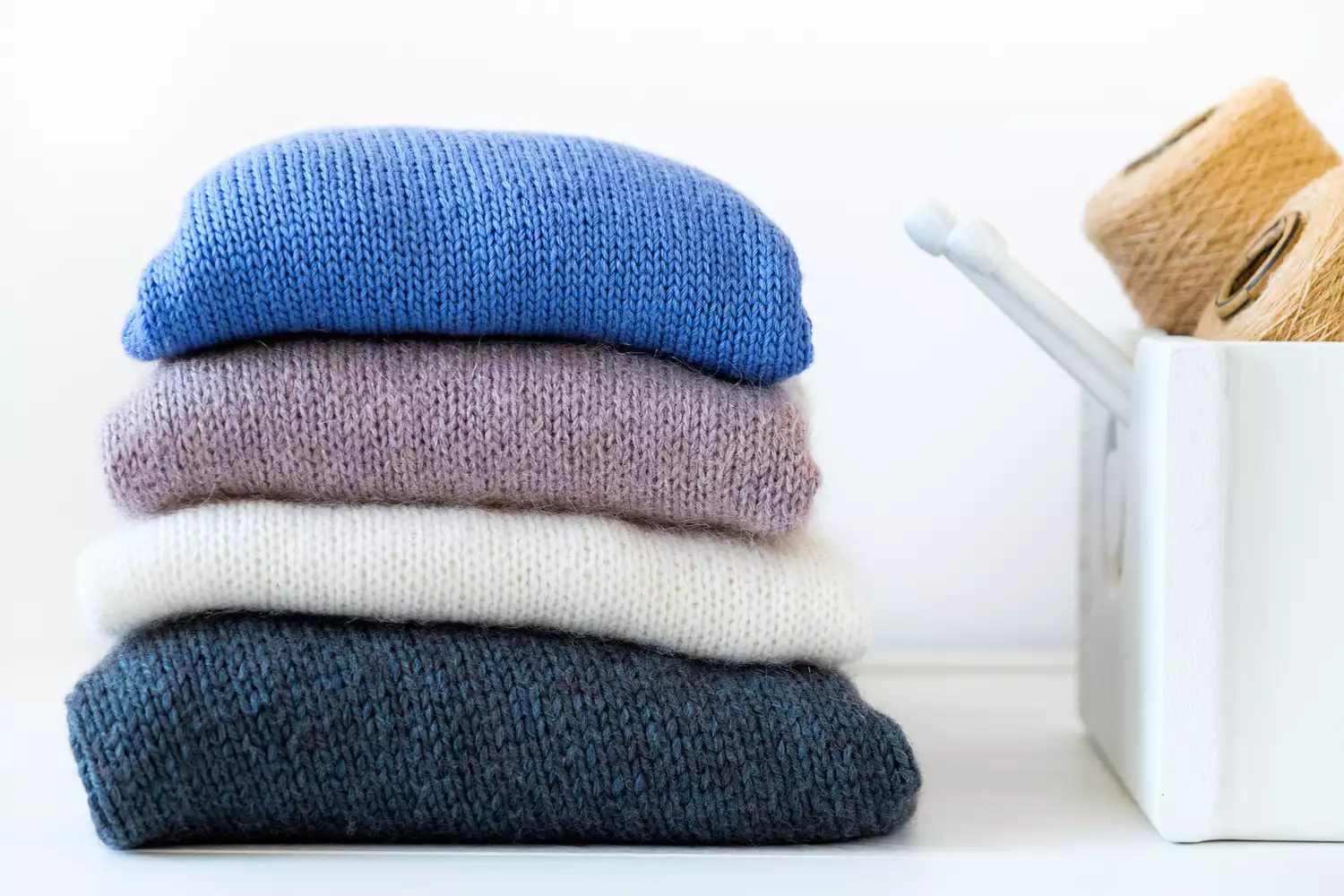
The most common types of yarn are made up of fibers like acrylic, nylon, and polyester, which contain plastics that add to our growing landfill problem with their inability to completely break down. Thankfully, we’ve seen a shift in recent years within the DIY industry, with more yarn brands moving towards ethical and eco-conscious crafting.
To make it easy to decide which of these sustainable yarn types works best for a variety of projects, we tested 23 different yarns that we received for review. We noted the look, ease of use, durability, drape, and how well each strand of yarn kept its shape after undoing a project. Our top pick, the Echo Fiber Mill Ranger Merino Yarn, impressed us with its soft touch yet firm drape, plus its resistance to tangling.
Backed by our testing, these are our top picks for the best sustainable yarn offerings.
Echoview Fiber Mill Ranger Merino at Echoviewnc.com
Max and Herb Puna Cotton at Maxandherb.com
Echoview Fiber Mill Haley at Echoviewnc.com
Manos Del Uruguay Wool Clásica at Etsy$21
We Are Knitters The Tape at Weareknitters.com
We Are Knitters Bamboo at Weareknitters.com
Best Overall
Echoview Fiber Mill Ranger Merino
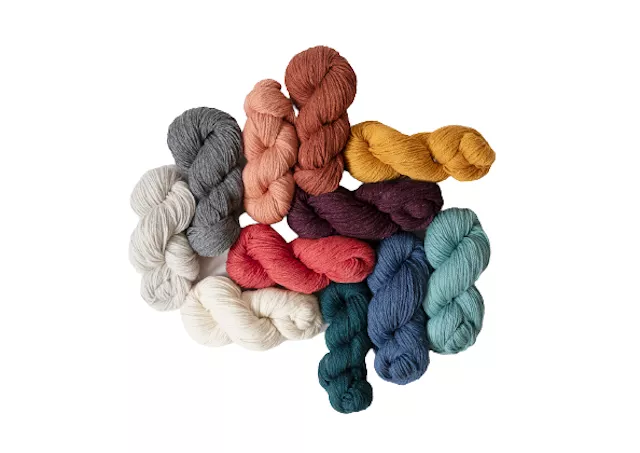
PHOTO: Echoview
What We Like
- Soft to the touch
- Firm drape
- Doesn’t tangle
What We Don’t Like
- Hand wash only
This yarn comes from Echoview Fiber Mill, based in the appropriately named Weaverville, North Carolina. Echoview is the first fiber mill in the country to be Gold LEED-certified, a certification awarded for sustainable practices in constructing and maintaining “green” buildings. As part of its sustainability initiative, Echoview sources its wool directly from farmers across the U.S. and even those up the road from the mill, as is the case for Ranger Merino.
Slightly on the chunky side, this thick yarn passed every single one of our tests and was a crowd favorite. We especially loved how soft and squishy it was and how it never tangled when it was unwound, unlike some of the other yarns we tested. Despite our many tests, the ends of the yarn never frayed or opened up, and it didn’t split between knitting or crochet needles. While the drape was firm, we could tell it would get softer over time and end up with a sweet little fuzziness.
Material: 90 percent merino wool, 10 percent rambouillet wool | Weight: 100 grams each | Length: Starts at 140 yards | Gauge: 15 stitches and 16 rows = 4 x 4-inch square knit on size US 10, Bulky; 21 stitches and 26 rows = 4 x 4-inch square knit on size US 6, DK | Needle: US 9 to 11 (5.5 to 8 millimeter), Bulky, for knit; US 5 to 7 (3.75 to 4.5 millimeter), DK, for crochet; US K to M for crochet (6.5 to 9 millimeter), Bulky; US 7 to I-9 for crochet (4.5 to 5.5 millimeter), DK | Care: Hand wash in lukewarm water using mild, bleach-free detergent
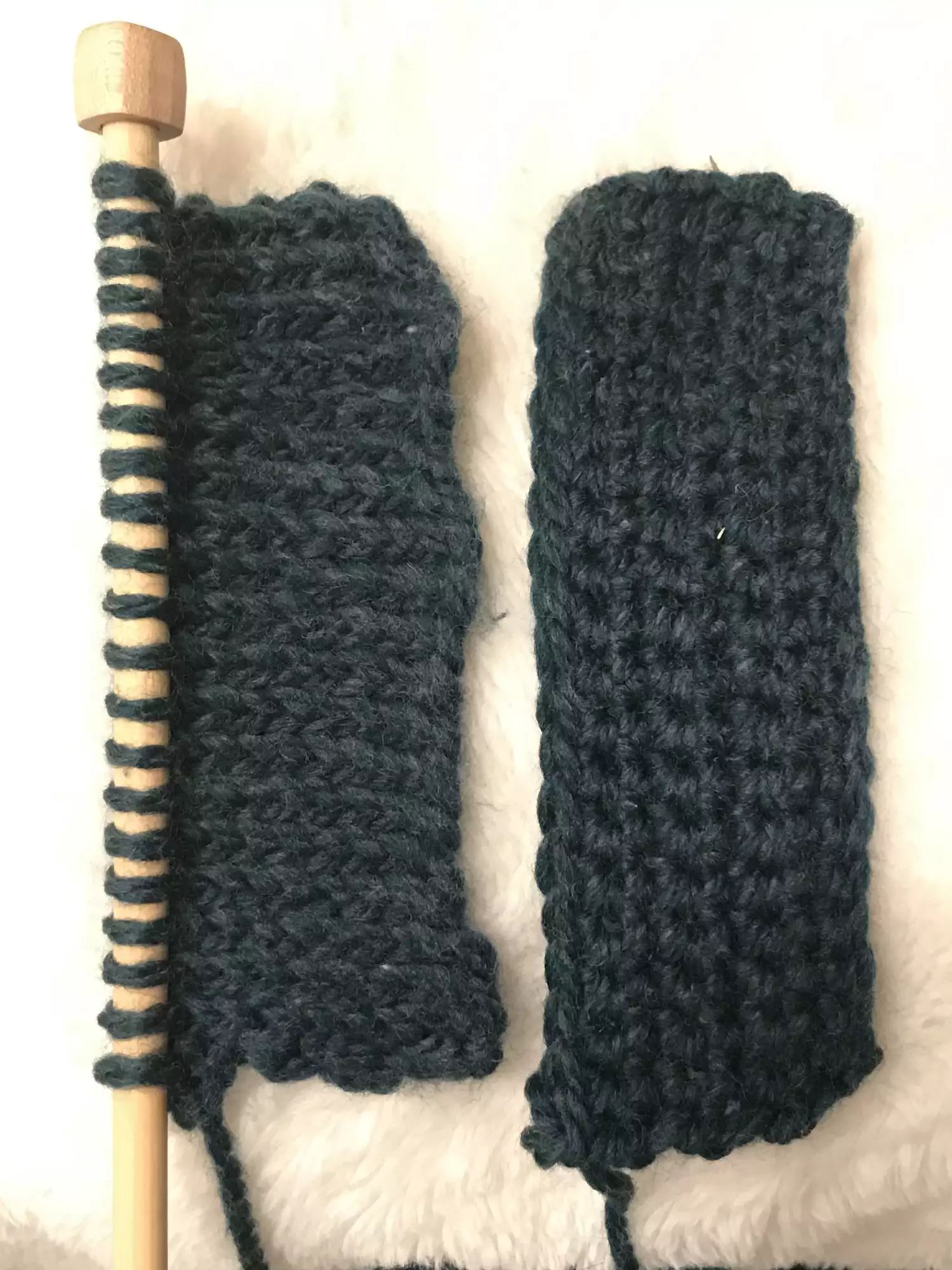
Best Cotton
Max and Herb Puna Cotton
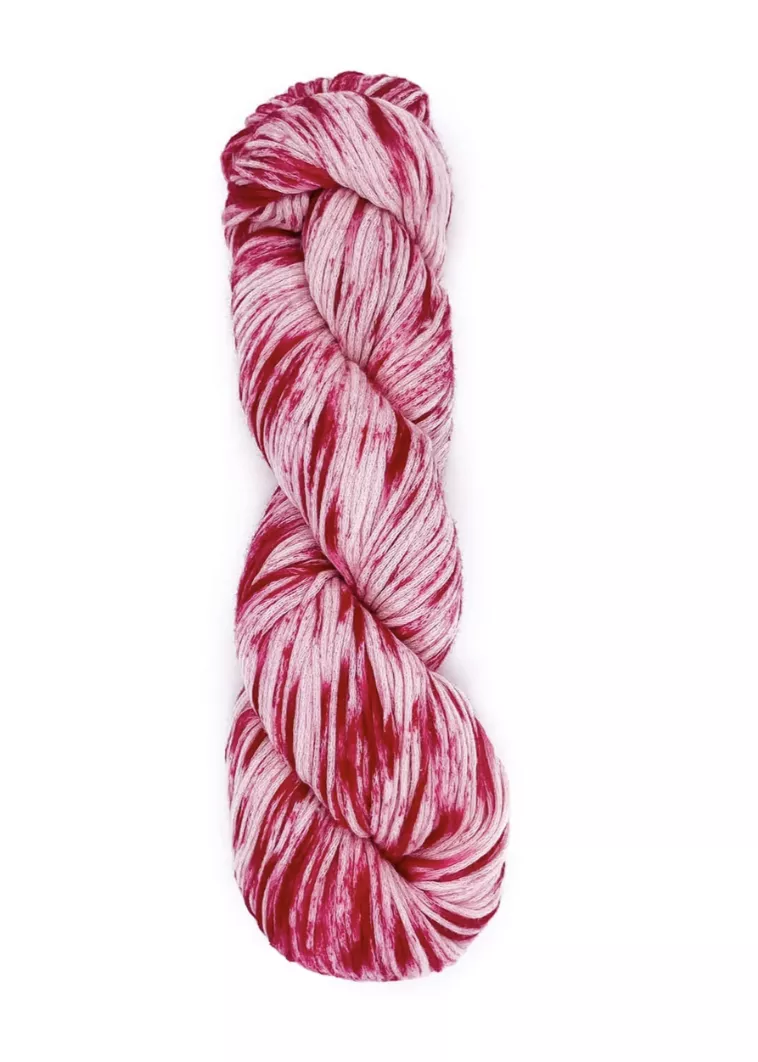
PHOTO: Max and Herb
What We Like
- Warm
- Lightweight
- Versatile
- Inexpensive
What We Don’t Like
- Small quantity per bundle
Launched in 2020, Max and Herb is a small company that offers a robust selection of their house-made yarns as well as brands that feature low-impact fibers such as organic cotton, untreated wool, and recycled and reused nylon—all of which are often hand-painted with eco-friendly dyes.
The Puna Cotton yarn is a homemade brand that was easily our favorite cotton yarn for its multi-season appeal and medium drape that was neither too firm nor too loose. We never had to worry about tangling or knots, and the strand of yarn kept its shape without unraveling through multiple rounds of testing. We were also impressed with how spots of contrasting colors came together to create a nice visual texture as we worked it into lovely little swatches.
Material: 65 percent Merino, 25 percent Alpaca, 10 percent Mohair | Weight: 115 grams | Length: 159 yards | Gauge: 5 to 6 stitches per inch | Needle: US 4 to 6 (3.5 to 4 millimeters) for knit; US E to F (3.5 to 4 millimeters) for crochet | Care: Hand wash in lukewarm water using a mild detergent, soak, rinse, and dry flat
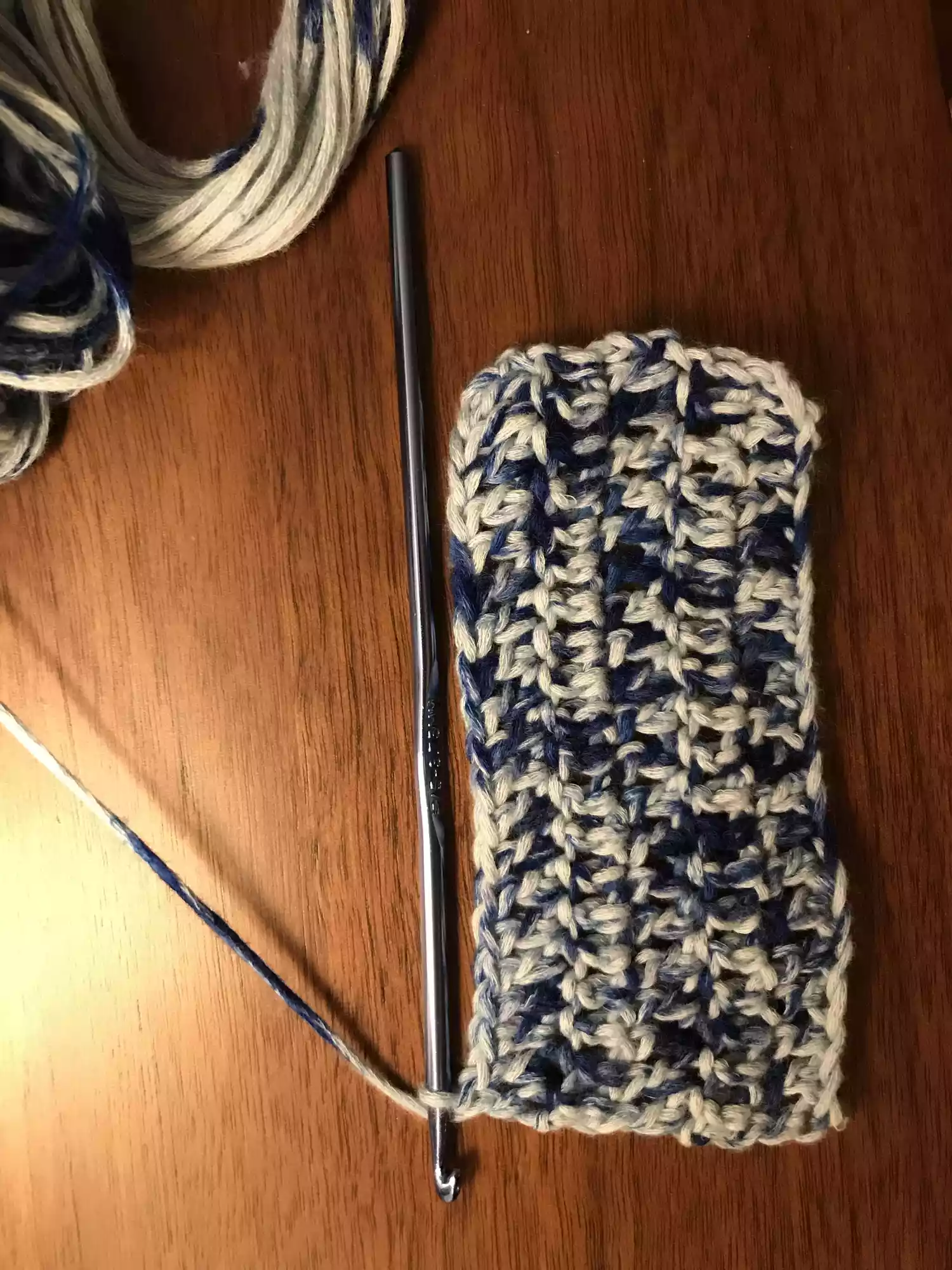
Best for Knitters
Echoview Fiber Mill Haley
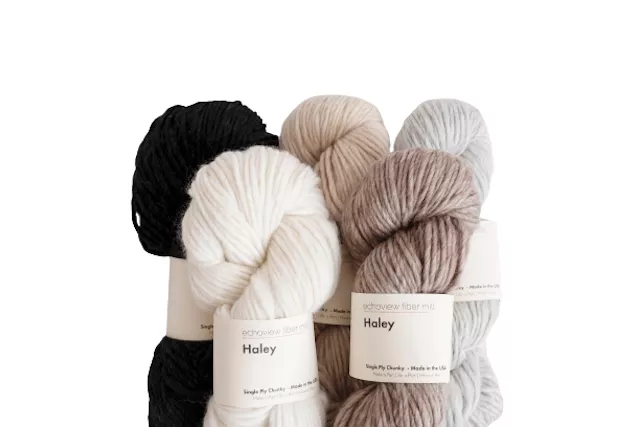
PHOTO: Echoview Fiber Mill
What We Like
- Blend of merino, mohair, and alpaca wool
- Soft
- Durable
What We Don’t Like
- Tendency to split on crochet hooks
Echoview Fiber Mill’s Haley yarn knit up exquisitely with an unbelievably supple drape, which is why this is our best pick for knitting yarn. Not only is it the right amount of chunky to slip easily between needles, but we found it performed well with all the different needle sizes we had on hand, making this yarn a good choice for those with a wide range of knitting abilities. And while the black yarn in this line is dyed, the rest of the colors come from the natural wool of the alpaca, thereby reducing the effects of dyes on the environment.
Crocheters may struggle with this yarn, not only because it splits on crochet needles, but because it knotted up as we were unwinding it from a crocheted swatch. Also, while trying to pull the knot out, the string of yarn broke in my hands. Since knitted stitches don’t typically tangle when they’re being undone, we think this yarn would suit knitters the best.
You’ll be enticed into knitting all kinds of warm scarves, dresses, sweaters, and beanies for yourself with this yarn, but in our opinion, this was our favorite for knitted gifts because of its enticing softness, warmth, and quality, and would be sure to please any lucky recipient.
Material: 100 percent Pima cotton | Weight: 50 grams | Length: 150 yards | Gauge: 6 stitches and 20 rows = 4 x 4 inch square knit on size US 10 (4 millimeter) needles | Needle: US 9 to 11 (5.5 to 8 millimeter) for knit; US K to M (6.5 to 9 millimeter) for crochet | Care: Hand wash gently in cold water using a bleach-free detergent
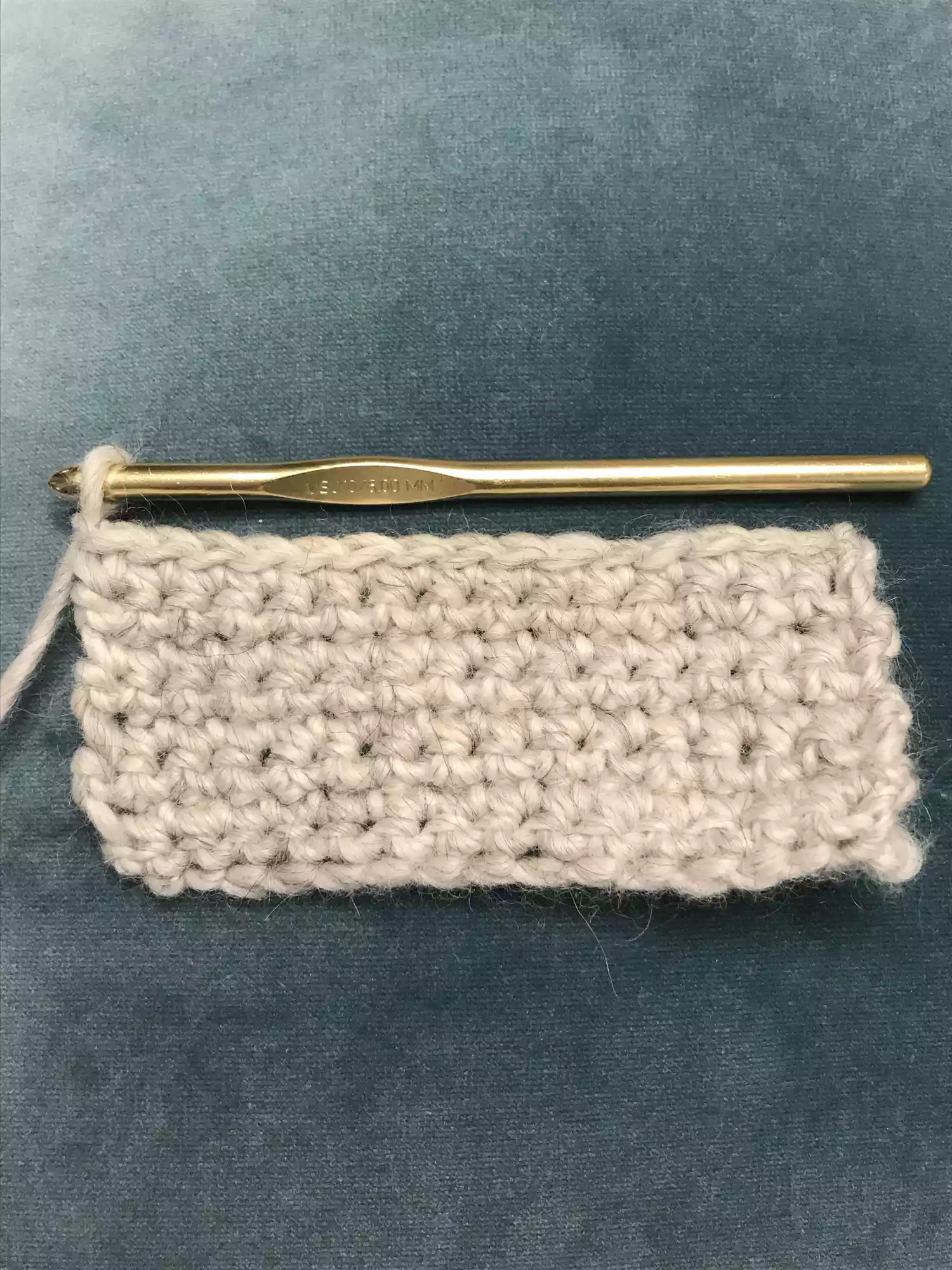
Best for Crocheters
Manos Del Uruguay Wool Clásica
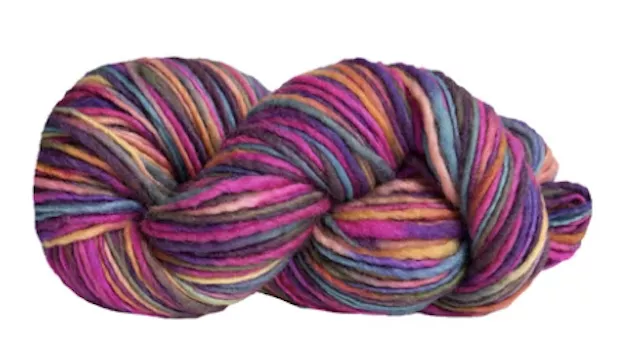
PHOTO: Manos Del Uruguay
What We Like
- Firm and fluffy
- Unwound easily without tangling
- No fraying
What We Don’t Like
- Uneven thickness
While high fashion brands like Stella McCartney, Marc Jacobs, and Coach often reach for Manos Del Uruguay’s yarns for their knitwear, we love the 100 percent biodegradable Wool Clásica for crocheted projects.
This flagship yarn performed the best in a crocheted swatch as opposed to a knitted one, and we appreciated its pliable drape even more with double and triple crochet stitches. The problem with crocheting with animal fibers is that they tend to stick together or tangle if a project is unwound, but we were very impressed with the smoothness of the strand and the way it kept its shape after repeated rounds of testing.
Material: 100 percent hand-spun wool | Weight: 100 grams | Length: 138 yards | Gauge: 14 to 18 stitches = 4 inches | Needle: US 8 to 10 (5 to 6 millimeters) | Care: Hand wash in cold water, dry flat
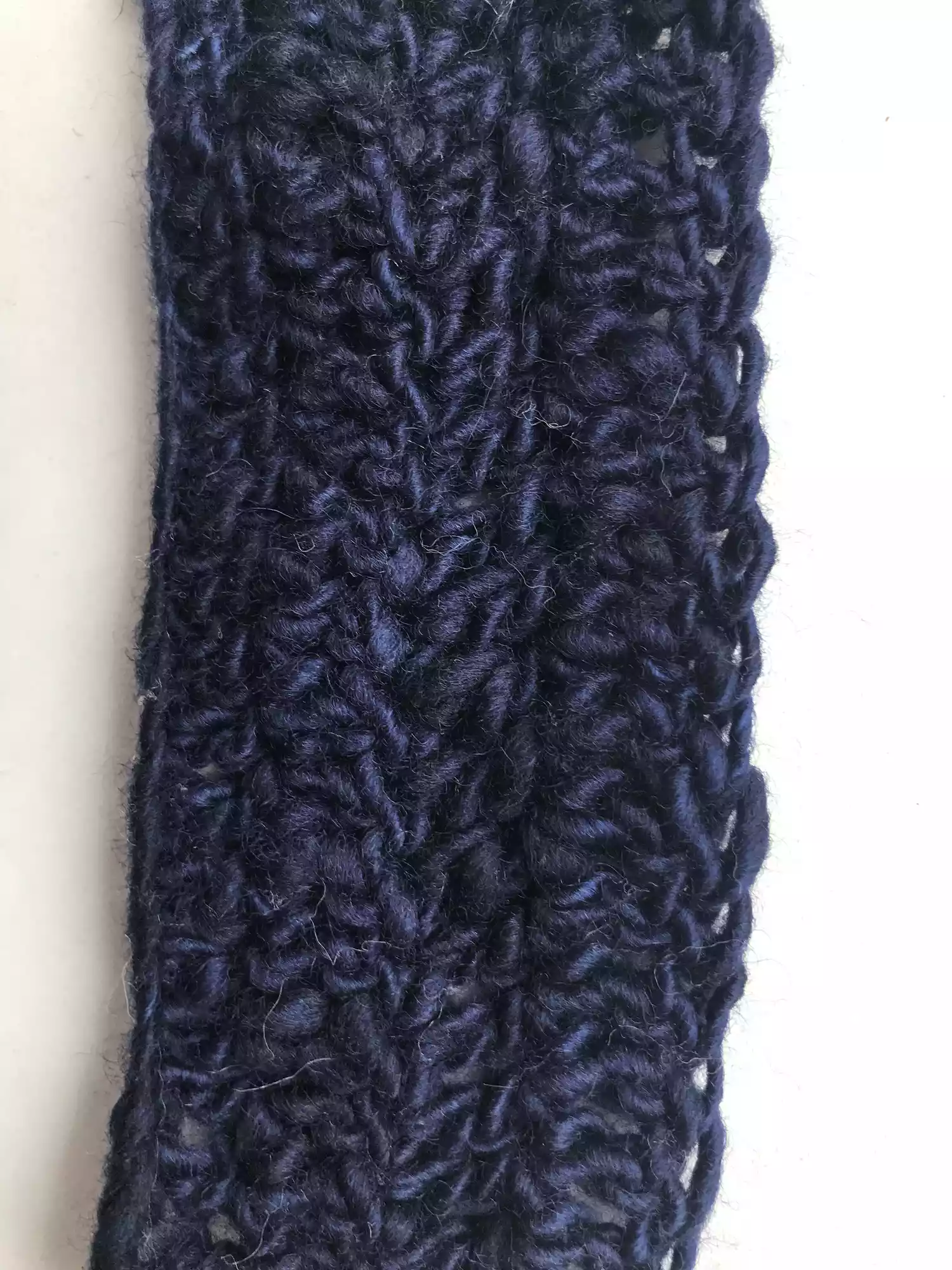
Best Splurge
Manos Del Uruguay Franca
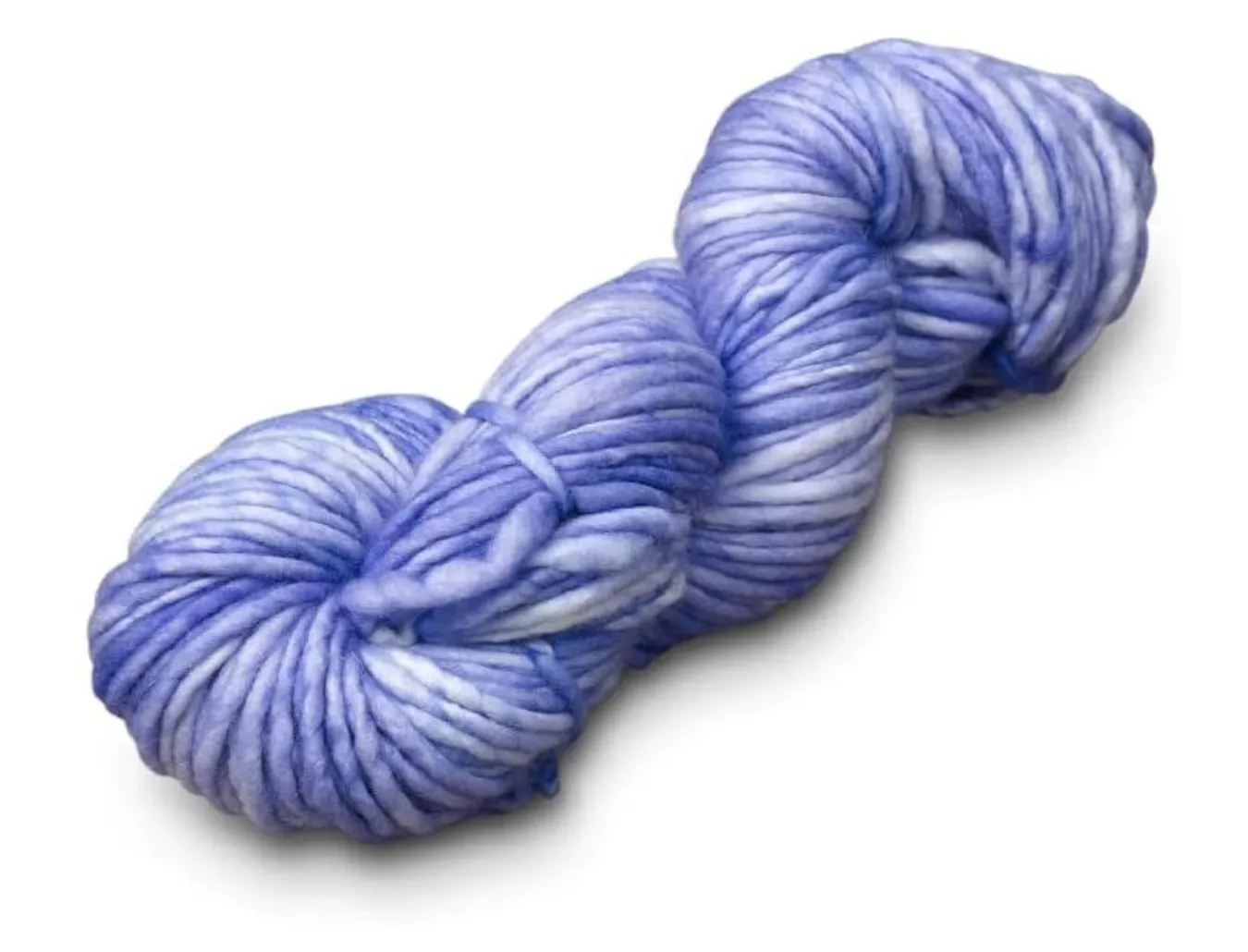
PHOTO: Manos Del Uruguay
What We Like
- Luxuriously supple yarn
- Company empowers local women in Uruguay
What We Don’t Like
- Thick strand of yarn tends to fray and open up after prolonged use
As its name suggests, this yarn hails from a collective in Uruguay that empowers local women to control their own means of production. In fact, the beautiful Franca yarn arrived with a label hand-signed by an artisan named Alicia. We loved the personal connection to this exceptional artist and the history behind this yarn. And to lessen the impact of their work on the environment, Manos Del Uruguay operates with a small-scale supply chain, reducing their water consumption and repurposing leftover scraps of yarn.
The Franca yarn was hand-dyed to resemble watercolors, and the drape remained soft and squishy without any of the itchiness. The Franca, made of 100 percent superwash merino wool, is also machine washable, a bonus for anyone who prefers to knit with animal fibers but doesn’t love the limitations of hand wash-only fabrics. But do note that because the yarn tends to open up and fray, make sure you’re washing on the delicate cycle.
Material: 100 percent superwash merino | Weight: 150 grams | Length: 114 yards | Gauge: 10 stitches = 4 inches | Needle: US 13 to 15 (9 to 10 millimeter) | Care: Hand wash and dry flat
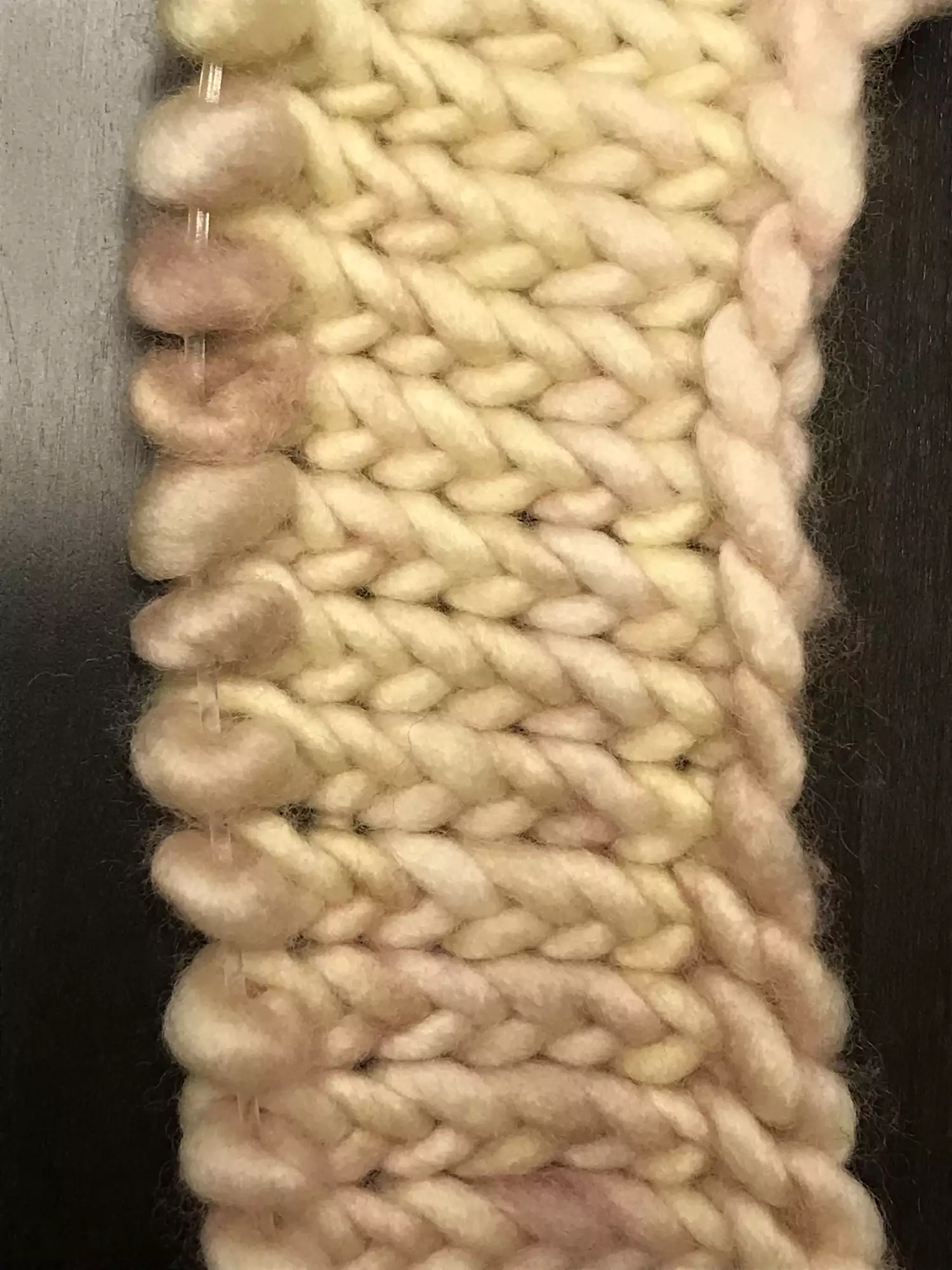
Best for Accessories
We Are Knitters The Tape
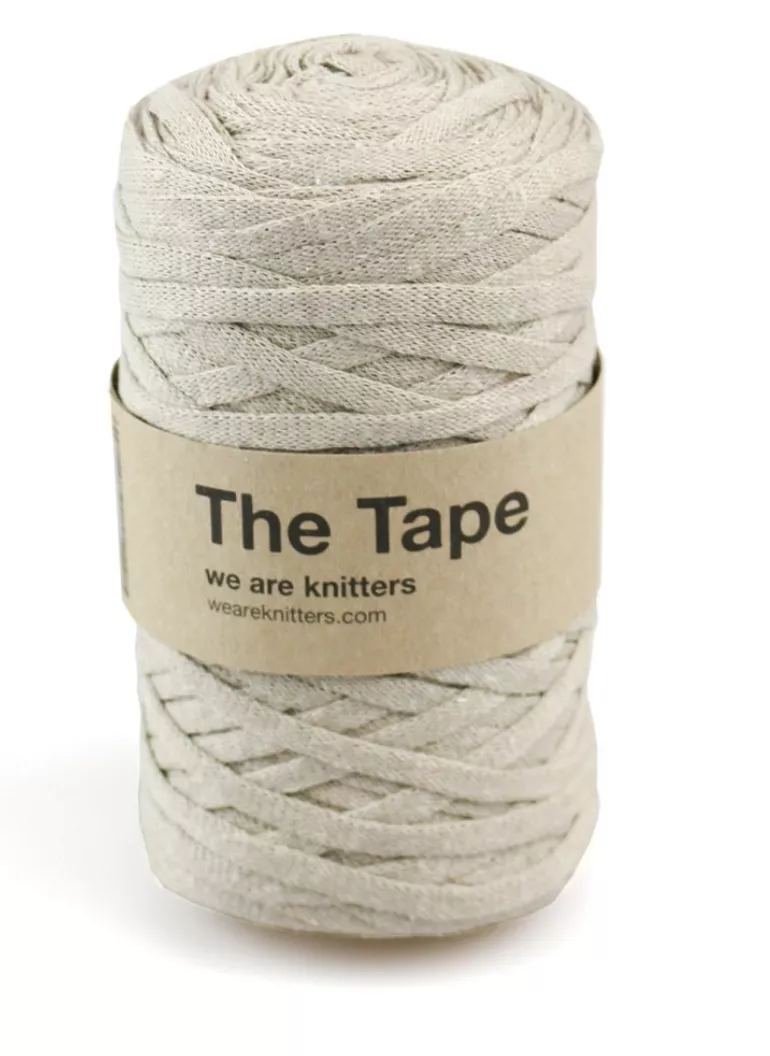
PHOTO: We Are Knitters
What We Like
- Well-constructed and durable
What We Don’t Like
- Stiff drape
Yarn crafting isn’t all about cute sweaters and scarves, and We Are Knitters The Tape is an excellent option for homemade baskets, rugs, coasters, placemats, and more. We thought this was the ideal cotton yarn for crocheting a weighted blanket or a knitted clutch.
Made of 100 percent recycled cotton T-shirts, The Tape is one of many of We Are Knitters’ yarn offerings that promote the slow-fashion movement. Not only is this movement opposed to the harmful effects of fast fashion on garment workers, the environment, and animal safety, but it also promotes working with local artisans. It also promotes the art of hand-making one’s clothes with a focus on eco-friendly materials that will last longer than cheaper, synthetic fast fashion alternatives. We loved that there’s zero plastic in this yarn, and it’s ethically sourced from Peru, with production benefiting local communities.
Material: 100 recycled cotton | Weight: 250 grams | Length: 131 yards | Gauge: 11 stitches and 15 rows = 4 inches | Needle: US 8 (5 millimeters) for knit; US 7 (7 millimeter) for crochet | Care: Hand wash, dry flat
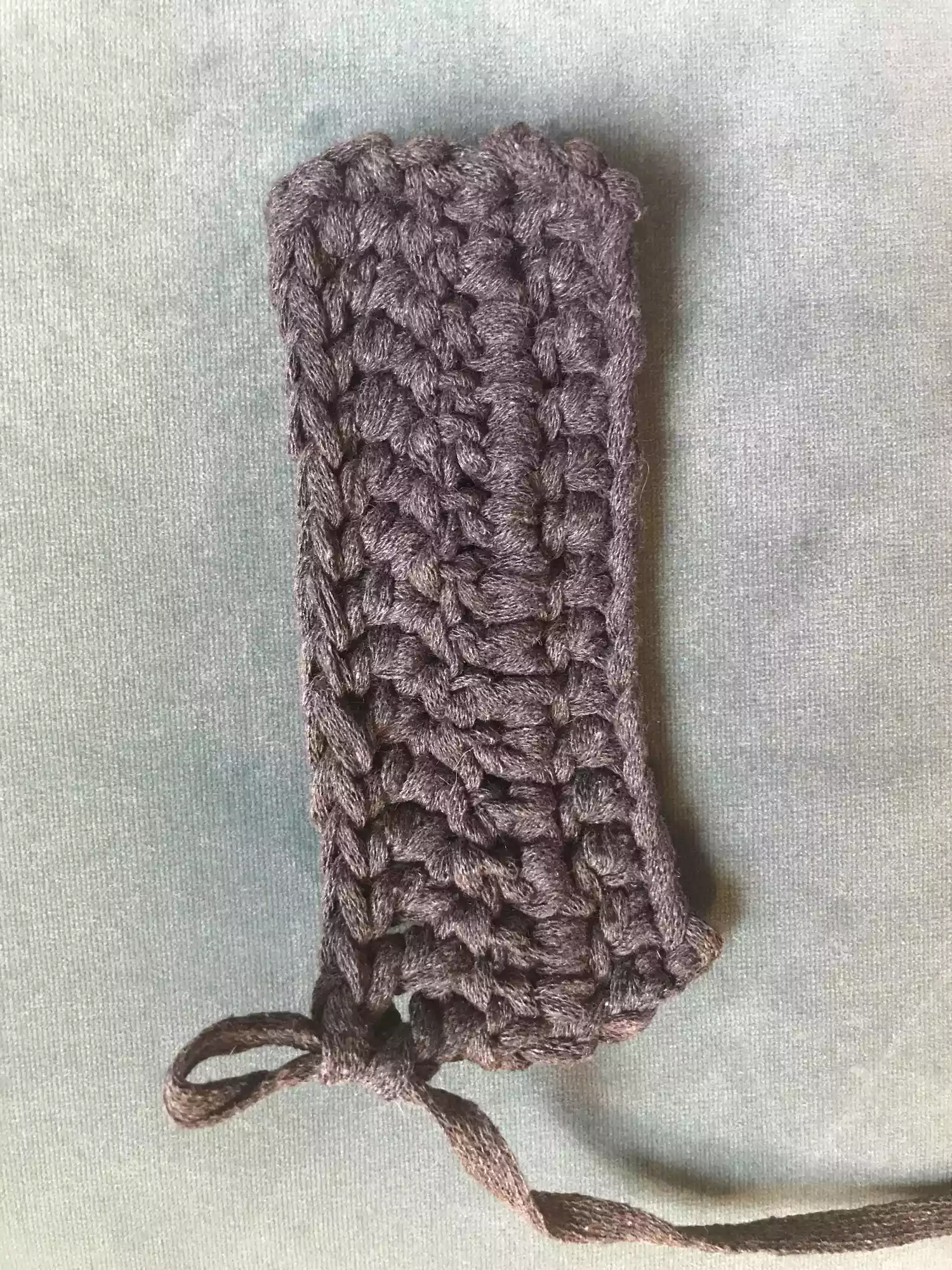
Best Wool
Wool and the Gang Alpachino Merino
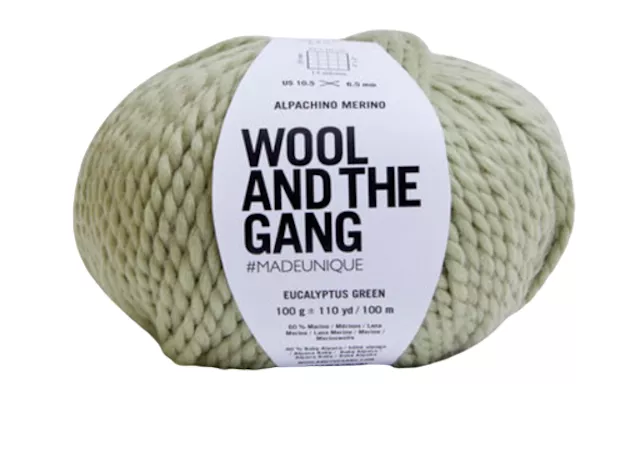
PHOTO: Wool and the Gang
What We Like
- Softest and fluffiest yarn
- Didn’t tangle up when unwound
What We Don’t Like
- Tendency to loosen and fray
While testing other yarns, we became accustomed to strands sticking together and knotting up as we undid swatch after swatch, but we never had those issues with the Alpachino Merino, which is why we crowned it the best wool yarn we tested. Made of alpaca yarn and merino blend, this yarn had the softest drape by far, so we think this would make the best yarn for baby blankets and other cozy, chunky knits.
Material: 60 percent Merino 40 percent Baby Alpaca | Weight: 100 grams | Length: 110 yards | Gauge: 13 stitches and 18 rows = 4 inches | Needle: US 10.5 (6.5 millimeters) and US 11 (8 millimeter) for knit; US 8 (8 millimeter) for crochet | Care: Hand wash cold, dry flat
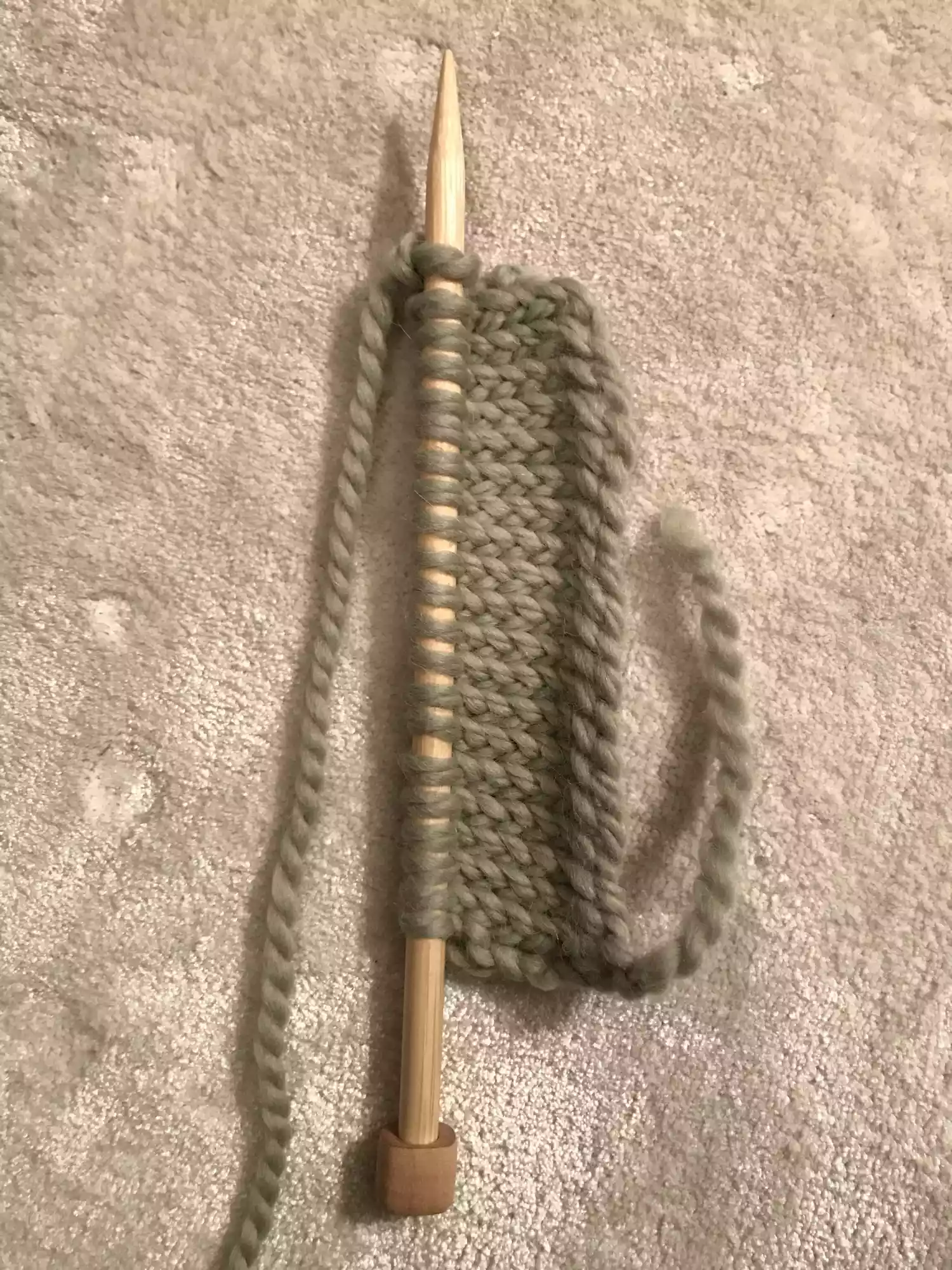
Best Plant-Based Yarn
We Are Knitters Bamboo
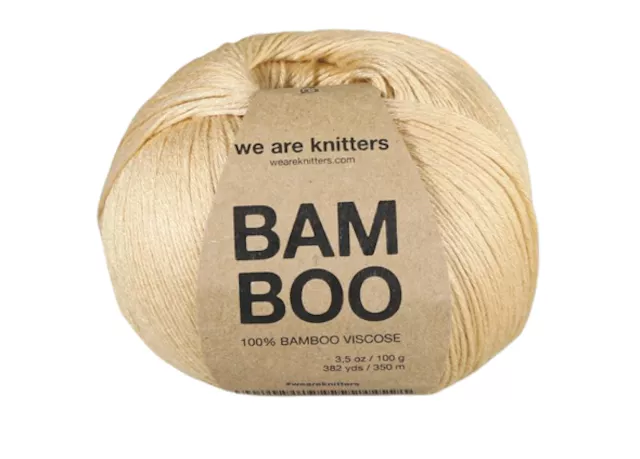
PHOTO: We Are Knitters
What We Like
- Lightweight
- Easy to work with
What We Don’t Like
- Tendency to split
- Tangles up with smaller crochet needles
For those who practice a vegan lifestyle, bamboo yarn is a silky yet durable alternative to animal fibers and is quickly becoming the go-to alternative for sustainable fabrics, beating out cotton yarn for its low impact and production cost.
Although the recommended needles for this We Are Knitters’ Bamboo yarn are on the tiny side at 3 millimeters, we enjoyed knitting and crocheting with larger needles, which created a lace-like drape that would be great for shawls, beach cover-ups, and mesh totes. But if you’re a patient knitter and don’t mind working with smaller needles, you could make some beautiful T-shirts and dresses with this soft and cooling yarn.
Material: 100 percent bamboo | Weight: 100 grams | Length: 382 yards | Gauge: 31 stitches and 34 rows = 4 inches | Needle: 3 millimeters | Care: Hand wash, dry flat
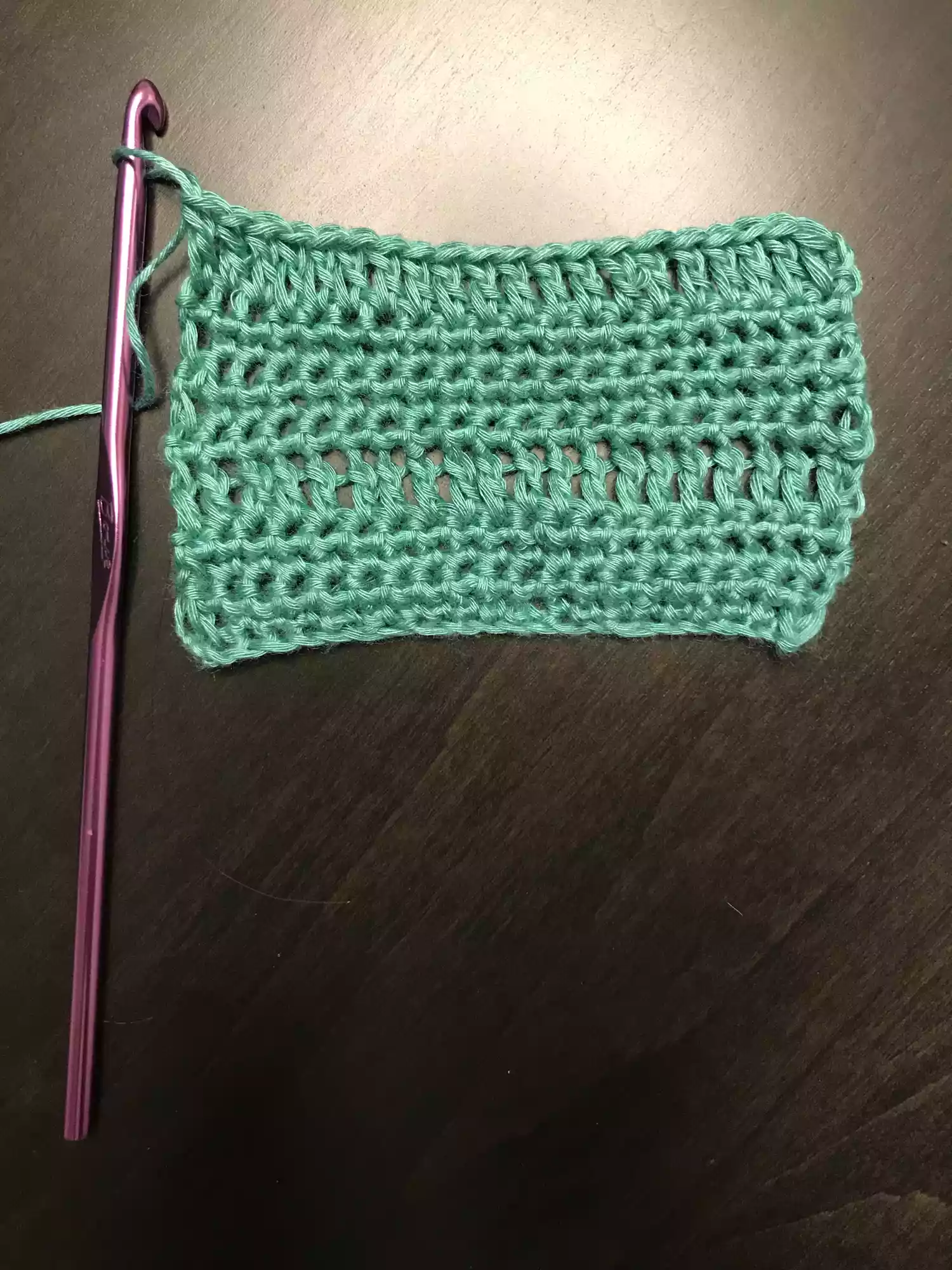
Best Recycled Yarn
Darn Good Yarn Silk Roving Worsted Weight Yarn
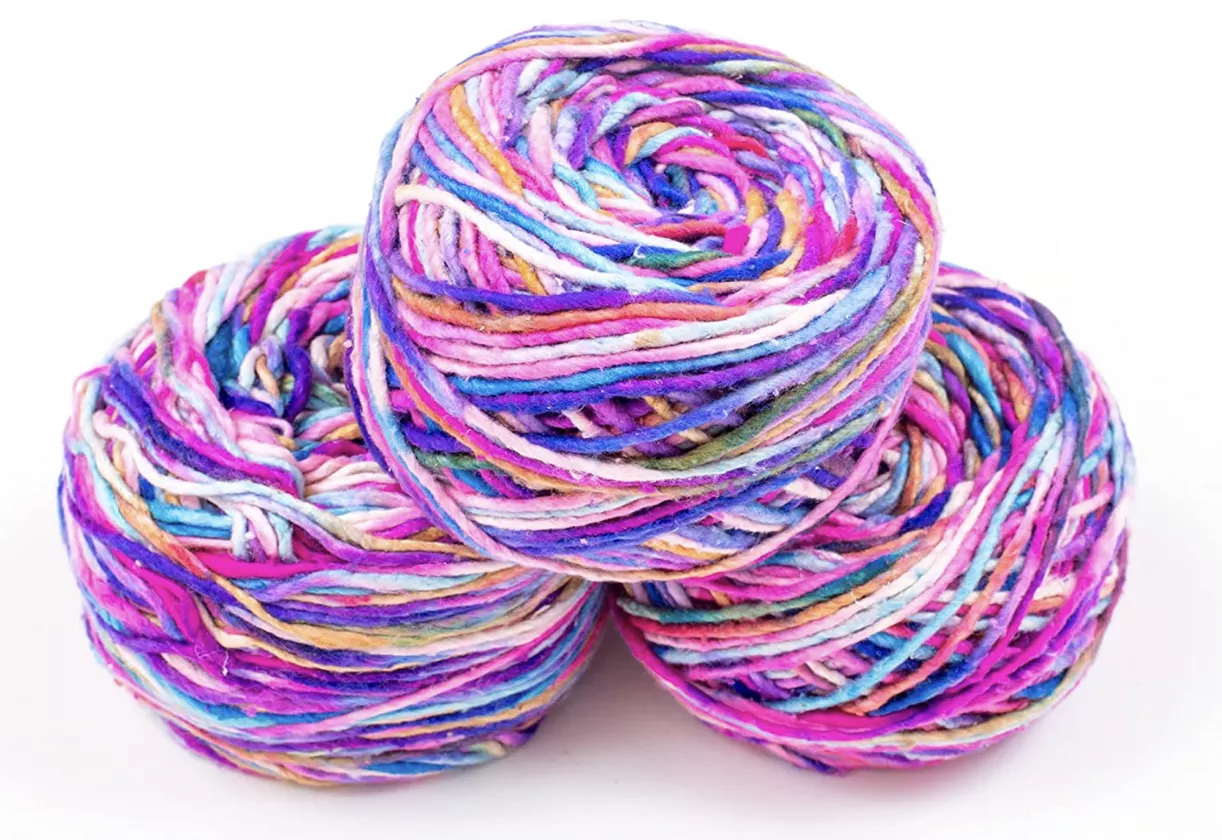
PHOTO: Darn Good Yarn
What We Like
- Silky and warm
What We Don’t Like
- Will not suit conscious crafters with a vegan lifestyle
Darn Good Yarn is committed to reducing landfill waste by sourcing reclaimed and recycled materials while providing safe employment to women in areas where they often face gender, caste, and racial discrimination. Based in India, these remarkable female artisans handcraft and dye each ball and skein themselves.
We not only were enchanted by the vibrant colors in the samples we tested, but we also noticed that all the yarns we received from this company had a pleasing floral scent, making this a great yarn for giftable projects. While other recycled yarns can be a little rough and quick to tangle due to the recycling process, the end result of our testing was a durable, shiny, and soft swatch with a sturdy drape and lots of potential for future crafting possibilities.
Material: 100 percent recycled silk | Weight: 50 grams | Length: 75 yards | Gauge: 16 to 20 stitches = 4 inches for knit; 11 to 14 stitches = 4 inches for crochet | Needle: US 7 to 9 (4.5 to 5.5 millimeter) for knit; US I to K (5.5 to 6.5 millimeter) for crochet | Care: Dry clean
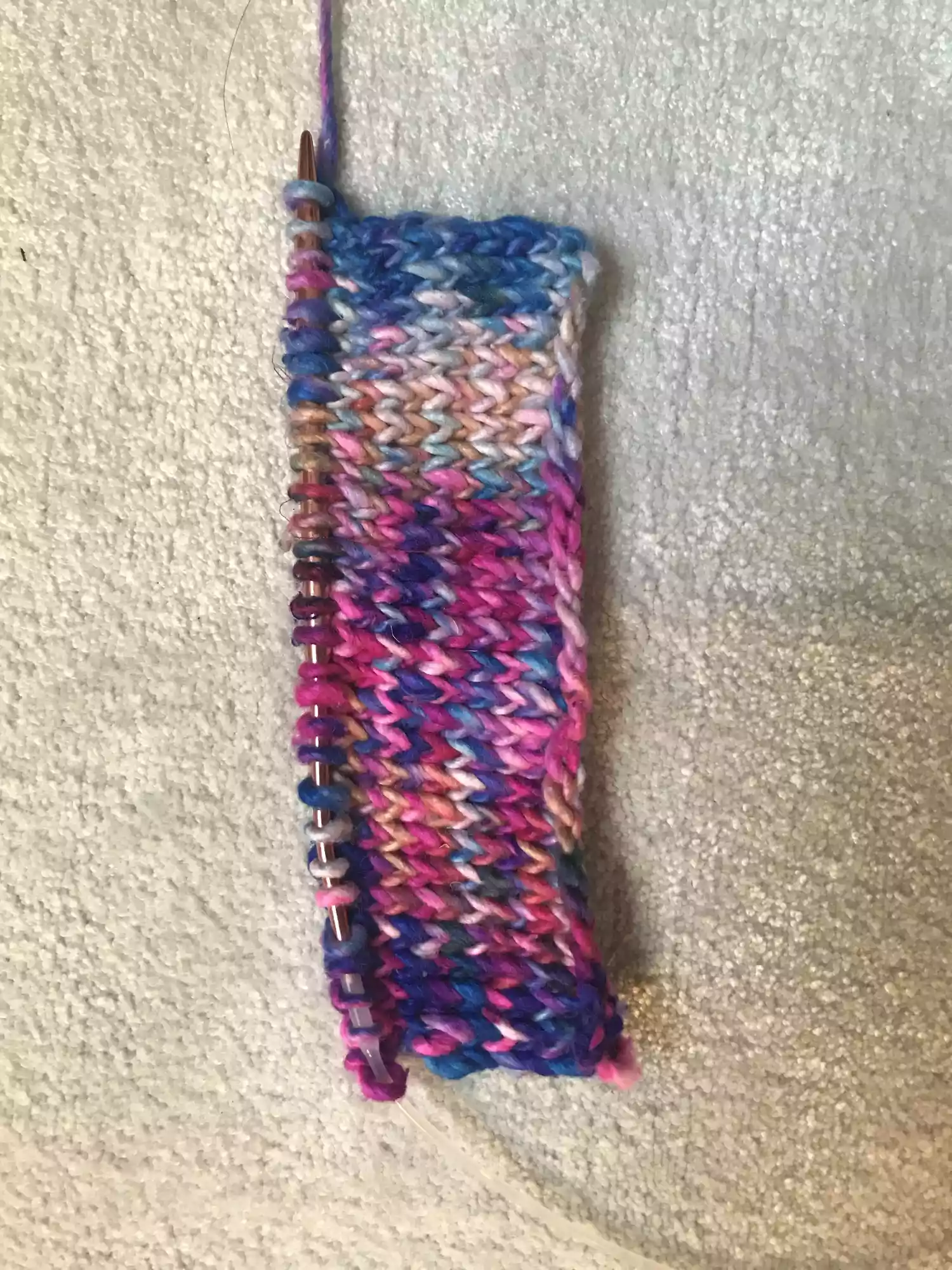
Final Verdict
Our top pick, the Echo Fiber Mill Ranger Merino Yarn, proved to be soft and squishy, and we loved how it never tangled when it was unwound, unlike some of the other yarns. If you’re willing to invest more, the Manos Del Uruguay Franca was hand-dyed to resemble watercolors. We appreciated that the drape remained soft and squishy without any of the itchiness during testing.
How We Tested
To find the best sustainable yarn options, we tested 23 different yarns that we received for review from six brands that demonstrated clear, environmentally-friendly practices.
Our editor invited a group of six friends to her annual yarn party and spent a minimum of half an hour knitting or crocheting with each yarn, noting the look, ease of use, durability, drape, and how well each strand of yarn kept its shape after undoing a project.
Afterward, our editor spent another hour with each type of yarn with both knitting and crochet needles to see how it would fare through a second round of testing, then narrowed down her top picks.
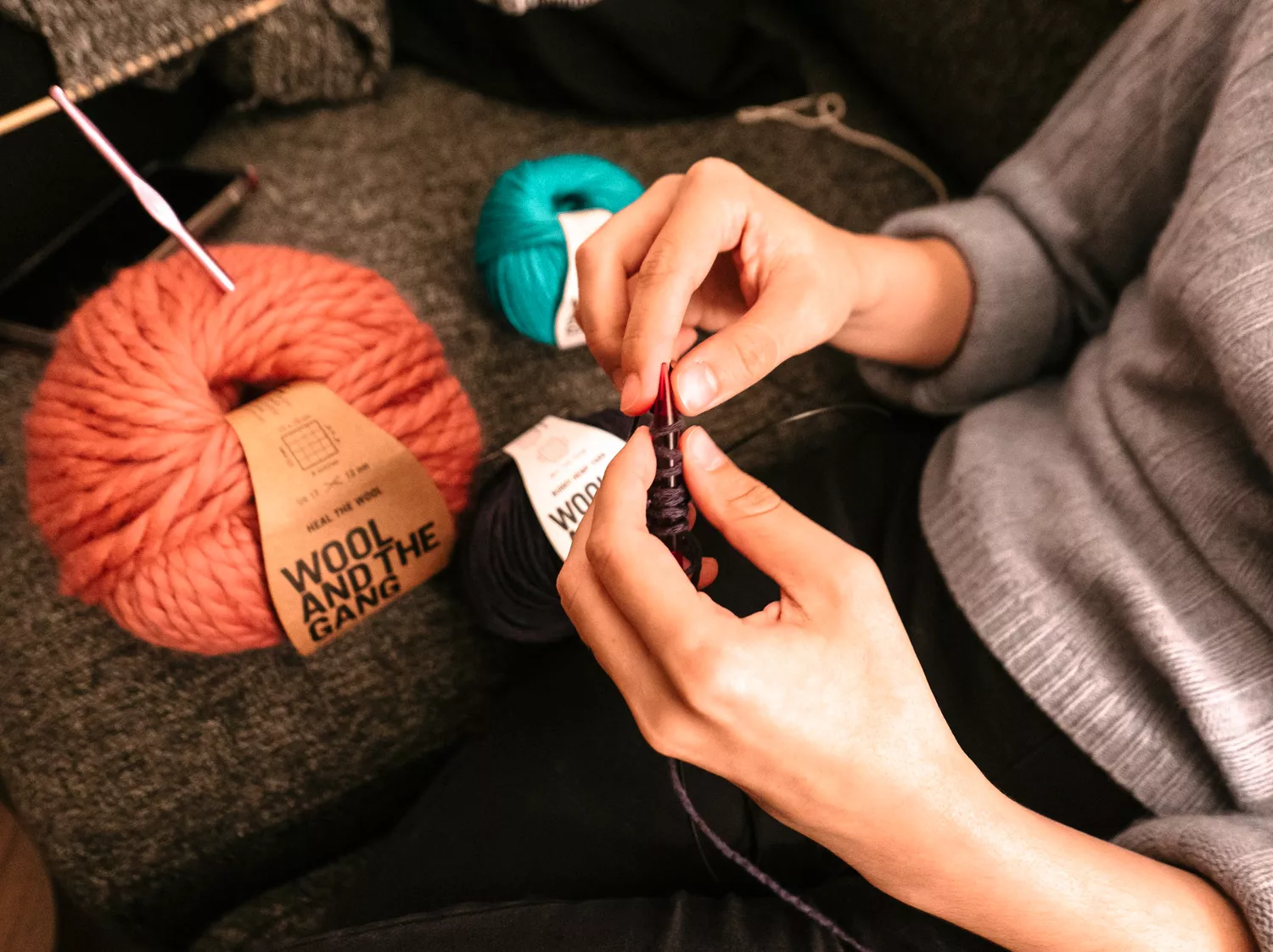
What to Look for in Sustainable Yarn
Level of Sustainability
There are a few things you should keep in mind as you look for sustainable yarn. First, you have to decide the level of sustainability you’re looking for. Not all of the yarn from these companies is 100 percent biodegradable or made with natural materials. Some upcycled or recycled yarns may contain polyester, a small amount of elastane, or nylon. Others contain recycled silk, so if you have a vegan lifestyle or object to the practices of silk production, they may not be right for you.
Price
Keep in mind that sustainable yarns may have a higher price point than standard yarns. Manufacturers who source natural materials from producers that value animal welfare and who use fair labor to create the yarn face higher costs. You can expect to pay more for some sustainable yarns, which can sometimes cost up to double or triple the price of synthetic substitutes.
Care Instructions
Also, consider the nature of the items you’d like to craft, whether they be gifts, clothing, or home accessories. Most of the yarn that made our list, especially the ones created from animal fibers, require hand washing. If you absolutely must, you can throw your project into the washing machine per the brand’s instructions, but make sure it’s washed in cold water and on the delicate cycle.
- Are sustainable yarns lower quality than other yarns?
Besides being safely biodegradable and earth-friendly, sustainable yarns also have the distinction of being higher quality than their synthetic counterparts due to the care that is put into the production process and the natural dyes and materials used.
- What is the difference between yarn weights, and why does it matter?
Knowing the difference between yarn weights is important when selecting a yarn type for your project. For instance, a worsted weight, which is the most common yarn type you will find in a store, is too bulky of a yarn for dainty socks. Those socks would require delicate fingering yarn, which, in turn, would not work for a winter beanie.
The best way to look at it is that a heavy, jumbo yarn should generally be limited to arm knitting, whereas bulky, roving, and chunky yarns would best suit those cropped sweaters and cardigans you’ve been eyeing on Instagram as well as cozy scarves, rugs, and throws.
And when it comes to the finer yarns, you can expect that lace and sock (also known as fingering) weight yarns would be best for their namesake projects, while sport and DK weights are better for all-season apparel, like knit tops and dresses. Finally, worsted-weight yarns, which have a medium weight, are ideal for apparel like sweaters, beanies, mittens, and other winter-weather projects.
Knowing your yarn weights will also help decipher which needles or hooks you should use. Usually, you can find that info on yarn packaging, but keep in mind that you should use smaller needles for lightweight yarns and larger ones for bulky yarns.
- How do I hand wash my knitted and crocheted projects?
Most animal-based fibers, like the ones we reviewed above, are hand wash only to avoid shrinking and preserve their look. All you need are a few materials and either a gentle detergent or a wool wash.
Fill a large sink, bathtub, or bucket with cold water and then, according to the detergent or wool wash’s instructions, add in the correct amount of cleaner and swirl to evenly disperse. If you haven’t already, spot treat any stains that need attention, and then submerge the item into the water and take care not to twist, wring, or scrub it; otherwise, it will lose its shape or become damaged.
Gently rub the item between your hands and once it’s clean, rinse it well until the water runs clear. Squeeze the item dry without wringing too much and lay flat on a dry towel. Press down firmly as you roll it up into the towel. Place the item face down on another dry towel and reshape it but avoid tugging or pulling it too much. Let dry for 12-24 hours, turning the item over if you need to.











